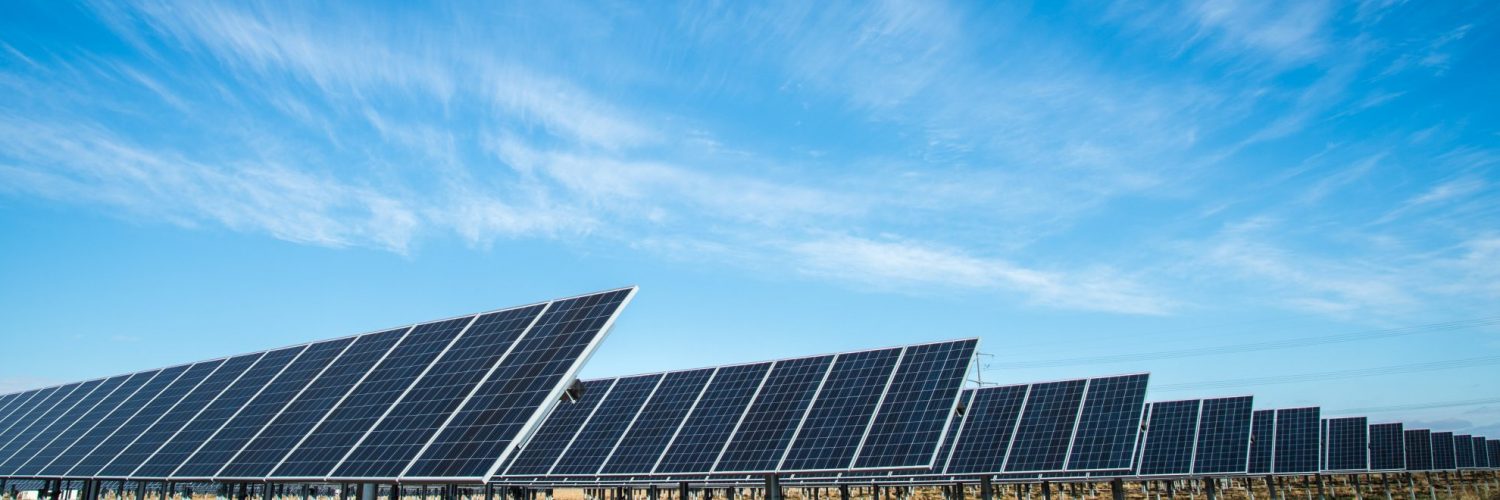As federal energy tax credits begin to expire this year, Congress is looking at new incentives to promote decarbonization technologies to address climate change and market demand.
As more utilities, companies and states pursue new clean and renewable energy goals, research is focused on better storage solutions and bringing the costs down.
Researchers at the University of Arizona in Tucson are on the front lines.
“With energy globally, there is a big push to think about how we can invent more reliable energy storage for our grid,” said Chemistry and Biochemistry Professor Jeffrey Pyun, an international leader in energy storage research. “We recognize the importance, the role, renewable energy will play in developing the economy of the state as well as nationally.”
Pyun is a faculty affiliate at the university’s Institute for Energy Solutions (IES), which promotes integration of renewable energy into the grid through energy storage research. In addition, its Power Forecasting Group makes high-resolution weather models and power forecasts for 2.7 GW of renewable energy power from Southwest utilities.
Research at the university is commercialized through the university’s technology commercialization launch pad, Tech Launch Arizona (TLA).

Biggest challenge: energy storage for large utilities, facilities
As utilities invest more in energy storage structure, the biggest challenge is finding safe, more portable and dense energy systems for large utilities and facilities at lower cost, Pyun said.
Current technology for large installations is expensive, dangerous and requires large blocks of property for infrastructure, he said.
“The biggest challenge is the cost per energy unit dollars. It’s difficult to take energy demand of that size and have call frequency, or time response. The ability to have batteries at a higher capacity is simply too expensive at this point.
“That’s where scientists, engineers and academics come in. How do you solve seemingly impossible problems and come up with solutions?” Pyun said.
Tax credits for R&D to improve clean energy technology
Starting in December and over the next several years, a slate of federal tax credits for solar and wind power are set to expire.
With both houses of Congress introducing bipartisan bills with tax credits for energy storage research and development, there is a good chance a bill on energy storage will be passed.
New R&D funding and incentives could benefit Arizona.
A Senate bill introduced this month by Sen. Susan Collins of Maine (R) would authorize $300 million over five years for research and development of grid-scale energy storage.
At a hearing of the Senate Energy and Natural Resources Committee June 5 on expanded development of grid-scale energy storage, Chair Sen. Lisa Murkowski (R-Alaska), stated that energy storage technology presents “a win-win opportunity” to make the grid cleaner, more resilient, and more affordable.
“By storing power when it is cheapest and dispatching it during peak demand periods when power is most expensive, energy storage can significantly lower consumers’ power bills,” she said.
At a hearing, experts testified that incentives and funding are needed to increase development of energy storage technology to address natural disasters and power shortages and outages.
“The nation needs a broad suite of these clean, dispatchable technologies if it is to achieve significant carbon emission reductions at a reasonable price,” Xcel Energy President and CEO Ben Fowke told the committee.
Arizona utilities investing in storage
In Arizona, utilities announced large investments in storage this year, putting the state as a top purchaser of storage installations.
Tucson Electric Power and Arizona Public Service (APS) have both announced they are investing in more solar and wind projects and storage facilities to harness their renewable energy. In February, APS announced plans to install 850 MW of energy storage by 2025, nearly 1 gigawatt of new clean energy technology, the single largest storage procurement from a utility to date.
In addition to energy storage, energy legislation is moving forward to put America back on top in commercializing nuclear technology. Read more at, advancing nuclear commercialization.
















Add comment